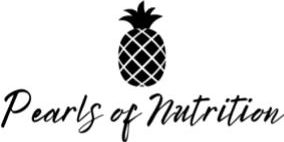Now I’m not telling you that you should stop cutting the fat off your meat. Too much of anything is still not a good thing and fat is more calorically dense than protein or carbohydrates (this means a smaller amount of fat has more calories than an equivalent amount of protein or carbohydrate). And seriously excess fat on meat is gross. My spoiled pup gets fed raw meat and even she wont eat just hunks of fat. Side note- anyone who feeds their dog a raw food diet please email me! I would love to pick your brain.
Anyway lets look at what the research says about low carb vs. low fat diets. This [1] article printed in the Journal of the American Medical Association did an analysis of low carb vs. low fat research studies and found that cumulatively research shows low carbohydrate diets are better than low fat diets at lowering triglycerides and raising HDL (the “good” cholesterol). Sweet. The article mentions the low fat diet was more favorable at lowering total cholesterol and LDL (the “bad” cholesterol) but fun fact about LDL- there are more than one sub type and as this [2] article describes, it is the small, dense LDL that increases cardiovascular disease risk, not LDL as a total number. FURTHERMORE, (gosh I love using that word, it makes me sound so smart) apolipoprotein B which is another fat/protein molecule shmammy that floats around in your blood is a better indicator of cardiovascular disease risk than LDL anyway[3]. Plus, high carbohydrate diet = inflammatory state [4] = chronic disease.
What the shit alphabet soup what does this even mean and more importantly what am I supposed to eat? Sorry to get technical but I do have dietetics and other health care professionals reading this so I need to at least pretend I am smart sometimes. Basically what this analysis is telling us is a low-carbohydrate diet is doing the best things for our blood cholesterol. So, what is an eater to do? I truly feel decreasing carbohydrates is the way to go. And anyone who knows me personally knows this is NOT the way I have always felt but after 3 years of formalized nutrition education and reading more journal articles and other diet books than most people do in a lifetime AND experimenting with a vegetarian, high-carb diet for a year myself I am a huge advocate for a lower carb lifestyle. Diabetics- always work with your endocrinologist to determine appropriate insulin levels and do not make drastic changes without first checking with them. I’m not telling you to stop eating carbs all together, that is impractical and I do think moderate amounts of carbohydrates can be a part of a healthy diet, especially for athletes.
But how much is too much? How much are you eating now? Here is how you can figure it out. Read the labels of everything you eat in a day. If it doesn’t have a label- yay, you are eating a whole food, you make me happy! Go here and find your foods. For everything you eat write down the grams of carbohydrates that are in it. You can also do this on apps like myfitnesspal or caloriecount. Where you at with your carb grams? I have heard a lot of different numbers on where you should be, it all kind of depends on who you ask. Since you’re reading my blog I will tell you that for myself I like to stay under 120 grams per day. For athletes, dudes, and bigger people this may be unrealistic and that is okay, there is no one-size fits all diet. Some people may feel better going even lower than that and I say go for it. I am all about what makes you healthy AND what makes you feel good. Keep in mind that it does take a little bit of time to adjust to a lower carbohydrate diet so you may feel a bit uneasy during the first week. Push through it. One week of pain now is a lot less painful than open heart surgery later. And if you think that won’t happen to you just remember current statistics say 1 out of 2 men and 1 out of 3 women develop cardiovascular disease in their lifetime. Find what number works for you. It is all about a steady progression so if it takes awhile to get there it is okay, health is a lifetime goal.
Another good thing about reading labels is you can find where those pesky carbs are lurking. There are the common ones like candy, cookies, doughnuts, ice cream, desserts, basically anything that tastes sweet, juice, soda, pasta, rice, bread, muffins, and cereal. But then there are things you didn’t even think to consider because they don’t taste sweet like vegetable juices, pretzels, crackers, potatoes, soups and stir fries that use flour or cornstarch to thicken, sauces like barbecue, ketchup, and some dressings, meats with honey or sugar glazes, baked beans and pasta sauce. Read labels and buy things that don’t have labels and cook yourself. It doesn’t have to be difficult. Meat and two veggies. Half your plate should be vegetables anyway, duh. What new recipe are you trying this weekend? Share them so we can enjoy too! Remember, boooooo vegetable oil. Here are a couple to try-
Cauliflower Leek Soup
Vegetable Steak Soup
Crockpot Apple Rosemary Pork Loin
Beef Stir-Fry (leave the cornstarch out)
Shredded Pork with Fruit Relish
Easy Brisket Dinner
Rosemary Chicken Skillet
The last thing I made was a variation of this sausage, kale, and white bean soup. I, of course, made the chicken stock myself. It was delicious. Okay I’m actually going to eat some now. Bye!
PS- Morgantown is SO not like the Wild Whites. Everyone here is like Sandra Bullock in The Blind Side- loves football, super pretty, and hair and makeup always flawless, and insanely nice. I promise not to start saying y’all.
